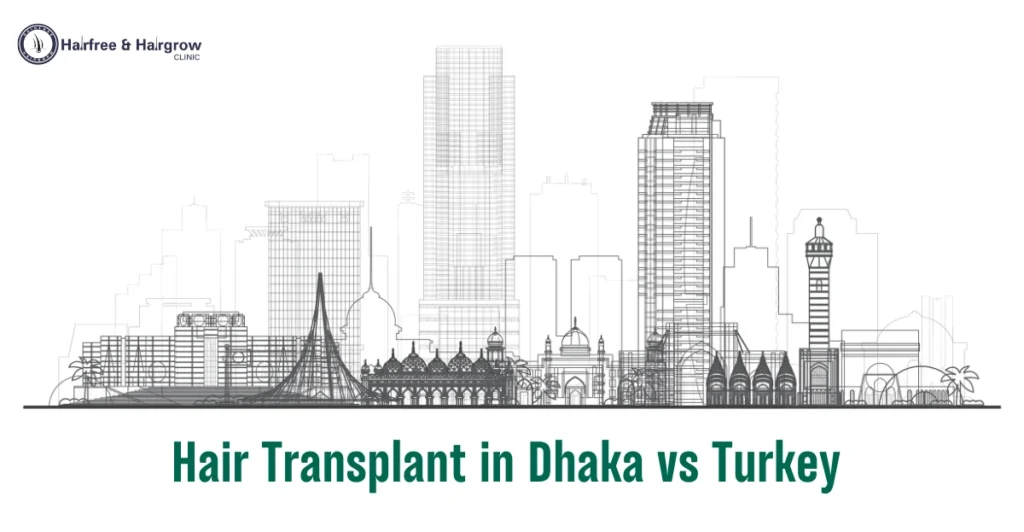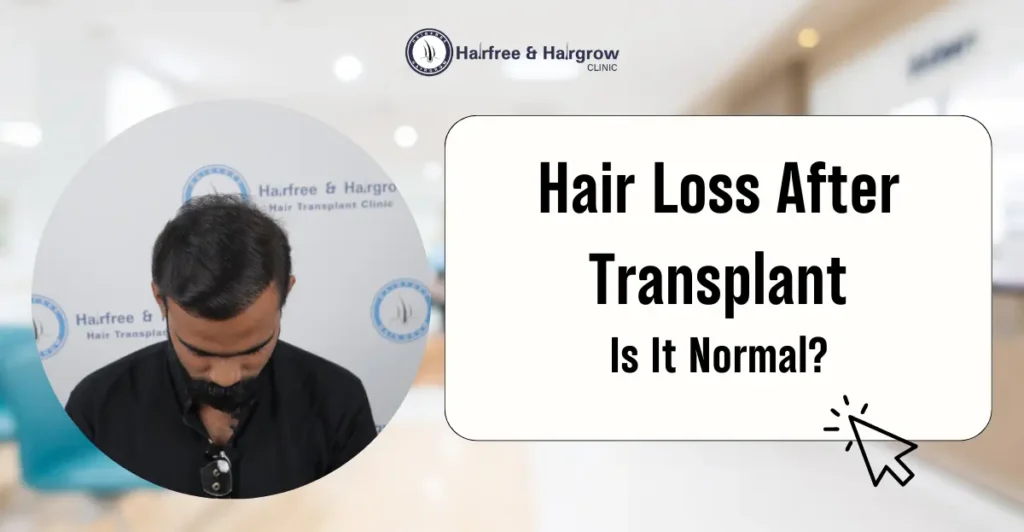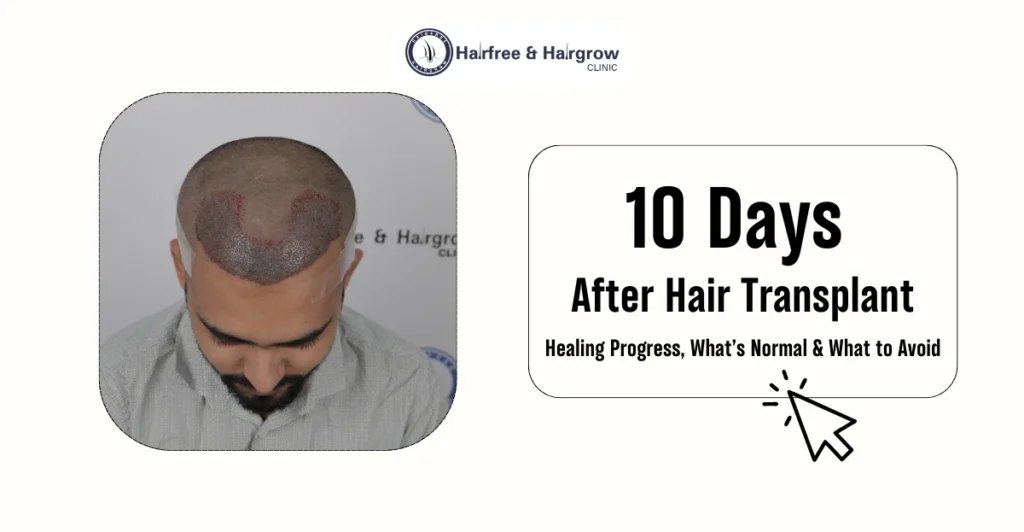Hair transplants are a popular solution for those struggling with hair loss. They offer a way to restore hair in areas where it has thinned or disappeared. However, one common question people have is about the longevity of these transplants. How long do they last, and what can impact their success over time? In this blog, we’ll explore these questions, breaking down the process of hair transplants and what you can expect in terms of results.
At Hair Free Hair Grow Bangladesh, our clinic is led by leading hair transplant surgeons in Bangladesh, offering advanced and reliable hair transplant procedures to restore hair where hair has thinned or disappeared. We are known for providing long-lasting and natural-looking results through state-of-the-art techniques and personalized care.
Table of Contents

The Basics of Hair Transplants
Understanding the Hair Transplant Process
A hair transplant involves moving hair from one part of your body, usually the back of your head, to the balding or thinning areas. This procedure is typically done using two methods: Follicular Unit Transplantation (FUT) or Follicular Unit Extraction (FUE). In FUT, a strip of scalp is removed, and individual hair follicles are transplanted. In FUE, individual follicles are extracted directly from the scalp and transplanted.
Factors Influencing the Success of Hair Transplants
The success of a hair transplant depends on several factors, including the skill of the surgeon, the quality of the hair used for transplantation, and how well the patient follows post-surgery care instruction
Our Clinic Location: Hair Transplant in Dhaka
How Long Do Hair Transplants Typically Last?
Initial Hair Growth After Transplant
After a hair transplant, you may notice some hair shedding in the first few weeks. This is normal and part of the process. New hair growth usually begins within three to four months, with significant growth visible after about six to nine months.
Longevity of Transplanted Hair
Hair transplants are designed to be a permanent solution to hair loss. The hair follicles used in the transplant are taken from areas of the scalp that are resistant to hair loss, meaning they should continue to grow hair for a lifetime. However, the longevity of the results can vary depending on various factors, such as age, lifestyle, and ongoing hair care.
Hair Transplants Can Give You Permanent, Natural-Looking Results
Why Hair Transplants Look Natural
The key to natural-looking hair transplants lies in the surgeon’s technique and the careful placement of each hair follicle. By mimicking the natural direction and pattern of your hair, the results can be indistinguishable from your original hair.
The Permanence of Hair Transplants
Since the transplanted hair follicles are taken from areas that are genetically resistant to hair loss, they are generally permanent. However, it’s essential to manage expectations as natural aging and other factors can influence the appearance over time.
Factors That Affect Natural Results Over Time
Factors such as continued hair loss in non-transplanted areas, stress, and overall health can impact the long-term appearance of your hair transplant. Regular maintenance and a healthy lifestyle can help prolong the results.
Factors That Impact the Longevity of Hair Transplants
Patient’s Age and Hair Loss Pattern
Younger patients may continue to experience hair loss in other areas of the scalp, which can affect the overall appearance. It’s crucial to plan the transplant considering the future hair loss pattern to ensure lasting results.
Lifestyle and Maintenance
A healthy lifestyle, including a balanced diet, regular exercise, and proper hair care, can significantly influence the longevity of your hair transplant. Avoiding smoking, excessive alcohol consumption, and managing stress are also important.
Technological Advancements
Advancements in hair transplant techniques, such as the development of more precise instruments and better post-operative care, have improved the longevity and natural appearance of hair transplants.
Expert Opinions on Hair Transplant Longevity
Insights from Hair Restoration Surgeons
Experts agree that the longevity of a hair transplant largely depends on the individual’s hair loss pattern, the skill of the surgeon, and how well the patient takes care of their scalp post-surgery. Many surgeons recommend periodic follow-ups to monitor the health of the transplanted hair.
Case Studies: Real-Life Results
Many patients have reported long-lasting results, with some seeing full, natural-looking hair even decades after their transplant. However, these results vary, and it’s important to have realistic expectations.
Conclusion
Hair transplants offer a promising solution for those dealing with hair loss, providing permanent and natural-looking results. However, the longevity of these results depends on various factors, including patient care, lifestyle, and the skill of the surgeon. By understanding these factors and following proper care guidelines, you can enjoy the benefits of a hair transplant for many years.
FAQ
1. Can transplanted hair fall out again?
Yes, transplanted hair can fall out shortly after the procedure, but this is usually temporary. The hair that regrows after this shedding phase is typically permanent.
2. How to make hair transplants last longer?
Maintaining a healthy lifestyle, following your surgeon’s care instructions, and considering additional treatments like PRP therapy can help prolong the life of your hair transplant.
3. What makes hair transplants look natural?
The natural look of a hair transplant is achieved through precise placement of hair follicles that match the natural growth pattern and density of your existing hair.

Written By
Dr. Nazmin Nipa
Medical Officer & Hair Transplant Surgeon
Dr. Nazmin Sultana Nipa is a distinguished hair transplant doctor in Bangladesh, known for her advanced skills in hair restoration. As a Medical Officer and Hair Transplant Surgeon, Dr. Nipa combines her extensive experience in the field with a focus on transparency and patient-centered care.
Disclaimer
We’ve made all possible efforts to ensure that the information provided here is accurate, up-to-date and complete, however, it should not be treated as a substitute for professional medical advice, diagnosis or treatment. See Detailed Disclaimers Here.



